It looks like you are in the United States
We have a different site (www.q-bital.com) which better suits your location
The surgical facility, installed at Royal Glamorgan Hospital, includes four operating theatres, an eight bay recovery ward, a six bay recovery ward, a waiting/reception area, consultation rooms, staff welfare and changing areas, and storage areas.

One of the four operating theatres
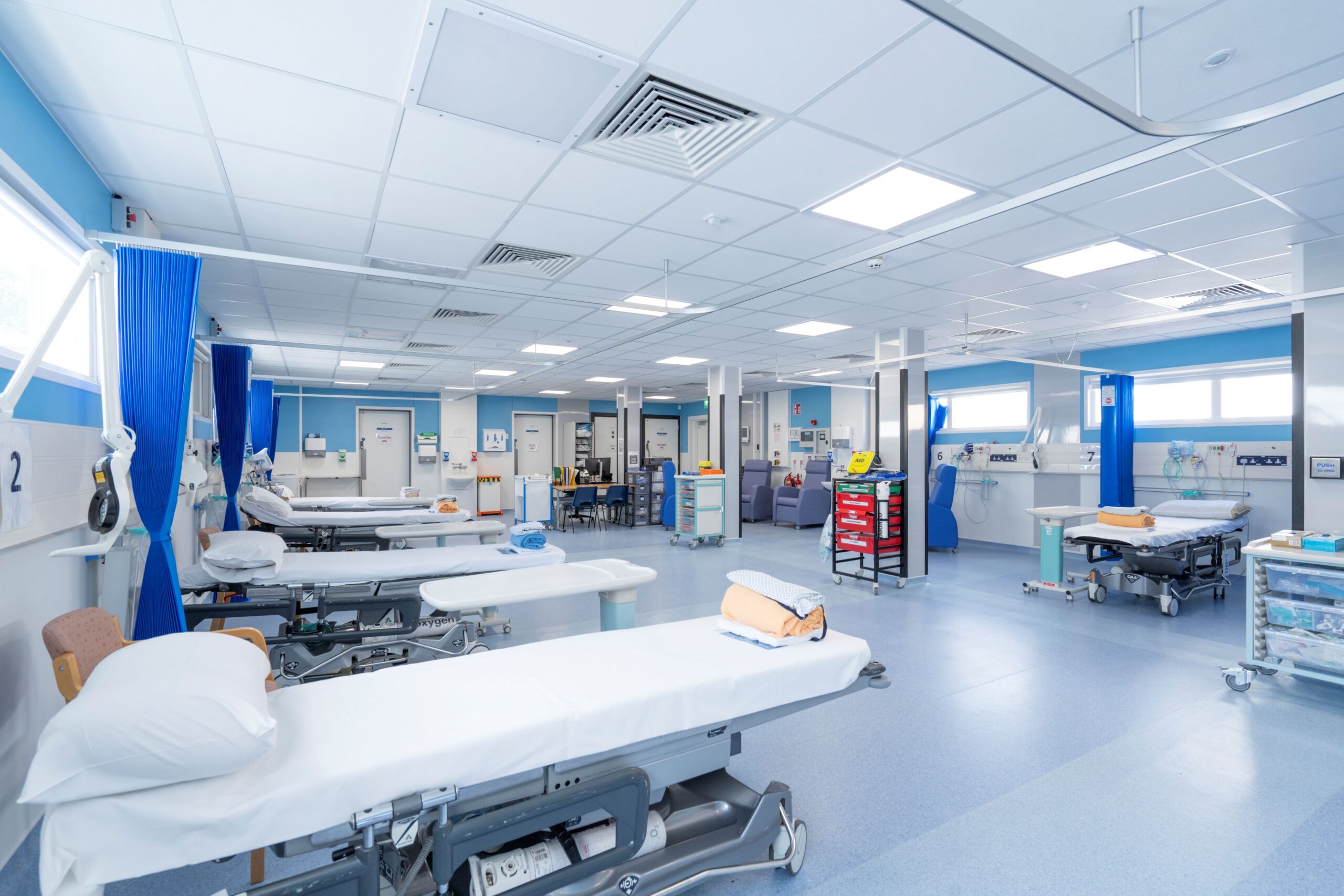
The eight bay ward
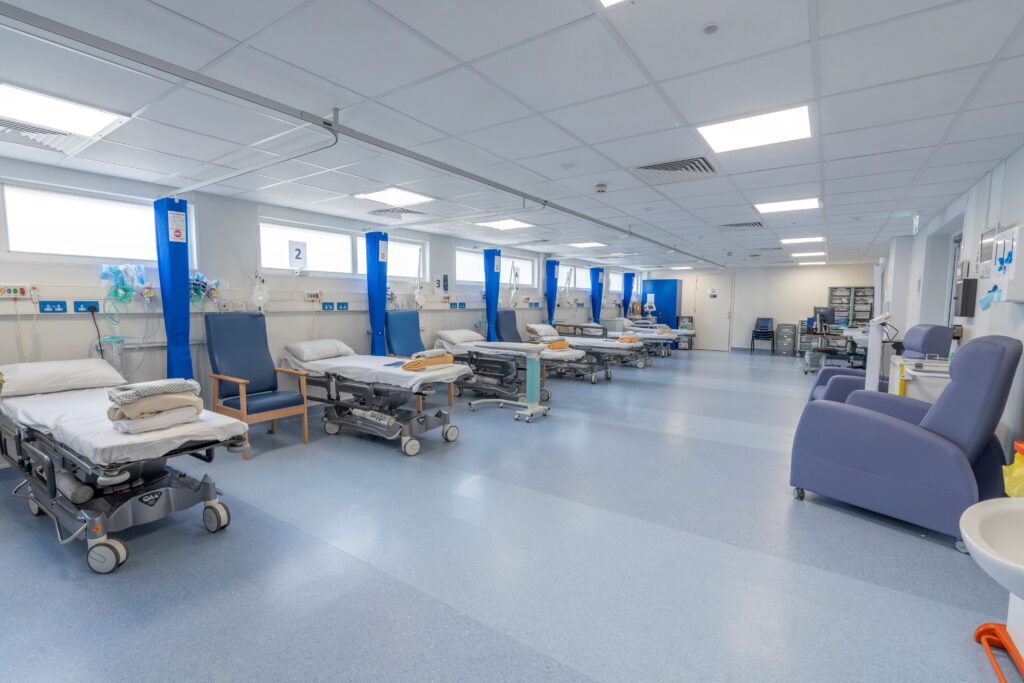
The six bay ward
A transcript of the conversation between Sarah and Chris:
Chris:
So, it's really nice to see you, Sarah, today. And maybe we should just start by introducing yourself and letting us know what your role here is.
Sarah:
Yeah, so I'm Sarah Edwards. I'm one of three directorate managers in the Planned Care group.
Primarily, my role is operationally accountable for the effective delivery of anaesthetics, critical care, theatres, trauma orthopaedic, pre-assessment and sterile services. So quite a broad patch, I cover. Very busy!
Chris:
Well, we're at the Royal Glamorgan Hospital, but actually, the challenge that you've been facing is at the Princess of Wales Hospital, isn't it? So, do you want to talk us through some of the challenges that you've had?
Sarah:
There's currently some capital works being carried out at the Princess of Wales. And those capital works, although they're temporary, they have put a temporary suspension on our theatre activity, six theatres in total.
So, of course, the capacity and activity being carried out at Princess of Wales is very limited at the moment, particularly for operations and treatment. So that has a knock-on effect to the management of waiting lists and treatment times.
Chris:
I guess the reason we're talking is because we've got a Vanguard facility on site here. So, was there a specific reason in the end why you felt that the Vanguard solution was the right opportunity to be able to support you with that capacity?
Sarah:
Yeah. So, I think the Vanguard is a facility that is similar to our existing theatres. You know, they came equipped. You have that first recovery area. You have the modules for the wards. So, you have a very efficient and effective admission and discharge pathway. So, it was mirroring our current service. So, it was the obvious solution really, to have theatres that we can perform and deliver without impacting any patient care or safety.
Chris:
It's quite a significant facility, isn't it now? There's two relatively large wards. You've got four theatres and then there's two endoscopy units as well, actually. So, just be good to get a view from someone that's in there actually in terms of the speed of the installation and how that came together.
Sarah:
I mean, the speed and the rapid response is nothing less than phenomenal. We were told in January that these four theatres were going to be landing on the Royal Glamorgan site and within 48 hours, we set up a task and finish group, which was multidisciplinary, involving a number of services and specialties, ranging from the very start of the capital team right through to facilities, to the therapies, radiology, health and safety and right through to admission and discharge and ward support.
But, yeah, nine weeks from start to finish, opening up what I can only call a micro version of a hospital is, yeah, it's absolutely phenomenal.
Chris:
It's really interesting because I guess I've seen it from the Vanguard side and just in terms of the way that we pulled our team together and to hear it from your side as well. And just the sheer scale from your perspective to be able to catch this, commission it with us and then actually start to get it functioning as like you say, a mini hospital over that period of time is exceptional.
Sarah:
It is exceptional. And I mean, nine weeks, you know, for the infrastructure to be embedded, for it to be constructed, for it to be fully equipped, to have all the equipment moved from one site to another, which was a task in itself. You know, this equipment is not easy to transport and to put those in there, you know, and get our waiting list management and all our IT systems aligned to a new set of theatres and the lifting and shifting of a whole workforce in nine weeks. It's pretty impressive.
Chris:
Very impressive. You should be very proud as a team.
Sarah:
I think we're all very proud. Yeah, very proud to be part of it.
Chris:
Excellent. And it's quite a standalone unit as well, isn't it? Because it's not directly connected to the hospital. So, what sort of activity are you doing within the theatres and the facility?
Sarah:
So, again, the scope of activity that we got going through there is probably way above and beyond what we originally expected. And again, that's due to the support of the radiology, the radiation team, sterile services. And the scope is very, very wide. So, we are now putting through general surgery, gynaecology, orthopaedics, max-facs, pain, ENT, probably all our services are going through it of some element of procedure and treatment.
Chris:
Awesome. How’s the staff found working on it?
Sarah:
Naturally, there were some reservations because none of them have ever worked in a Vanguard unit before. They have preconceptions that they're going to be working in a tight space and that they haven't got the luxuries that they have in a normal theatre. But that's turned a complete turning curve. They absolutely love working in them. They said that they're bigger than expected. They have ample room for storage. The admission and the discharge pathway is full of dignity. The theatres are adequate. Like I said, you've got the additional first recovery stage. So, yeah, they are absolutely thrilled. And we now have our team who actually want to be rotared into the Vanguards.
Chris:
That's good to hear, actually. And they're all together as well because my sense is they would have been scattered a little bit, actually, with the challenges you had at Princess of Wales. So having them all back together again and working together as a team…
Sarah:
Absolutely. Yeah. When we were informed of the situation, we had to optimise and maximise the staff in other areas. And that was covering any gaps we had in any rotas or transferring them over to other sites to be considered a supernumerary or to be assistants on the theatres. So, the staff lost a little bit of identity and a little bit of ownership. But nevertheless, we're in a critical incident and that's what we do here when we're in a critical incident. We share our resource. But now that they've got the vanguards, you're absolutely right. They're back to their cohesive working, back to their teamwork. They now are running as per their job plans and running as per their shift. So, the morale is boosted tremendously.
Chris:
That’s good to hear. What about from a patient perspective?
Sarah:
Yes. So, we've had tremendous feedback from the patients. I was actually on site when our first five patients came in on the 10th of April. And the first impression was that they felt they were in a five-star hotel. So that was lovely to hear.
It was a lovely atmosphere there. It was clean. It was brand new. The staff were in a position where they were trying something new.
So yeah, we've had fantastic feedback from there to say that the staff are lovely, the facility is lovely, the efficiency is great.
And yeah, we've had a number of responses saying that it's very similar to a five-star treatment.
Chris:
Excellent. And I guess all helping in terms of the waiting list requirements that you've got and just making sure those patients are getting the treatment that they need as well.
Sarah:
Yeah, absolutely. And that was our fear. You know, when you lose six theatres, it was the fear of how we maintain the activity to make sure that there's minimal impact to the waiting list and the amount of time that people are waiting for treatment. And the rapid response of the vanguards allowed us and enabled us to maintain our waiting list and continue to get patients treated in the time that we feel is maintainable.
Chris:
Excellent. And it'd be good to hear how you found working with us at Vanguard as well.
Sarah:
Brilliant. Yeah, we've built a really good relationship with Vanguard team right from the very beginning. And I think it's because we involved them right at the very beginning with the planning, operationally, which I think is key to the success really. Again, you know, it's not typical to have a task and finish group so big. You would normally have a small sort of overarching group with subgroups underneath. I think having that forum and that platform where we were all meeting once a week, including the Vanguard team, not only built the relationship, but we could see eachother's challenges.
But yeah, it was great. But everybody had a can-do attitude, that we can do this, in nine weeks!
Chris:
What a great way to finish. And I do take my hat off to you, actually, because having worked in a hospital environment and just sometimes the challenges from a clinical perspective, an operational perspective, from an IT perspective, and doing what you've done over that nine-week period in planning is absolutely amazing and a great achievement.
Sarah:
Yeah. And just to finish, I mean, we've only had 12 working days since the Vanguards landed. And we've seen circa 150 patients.
Chris:
OK, well, that's really good to hear.
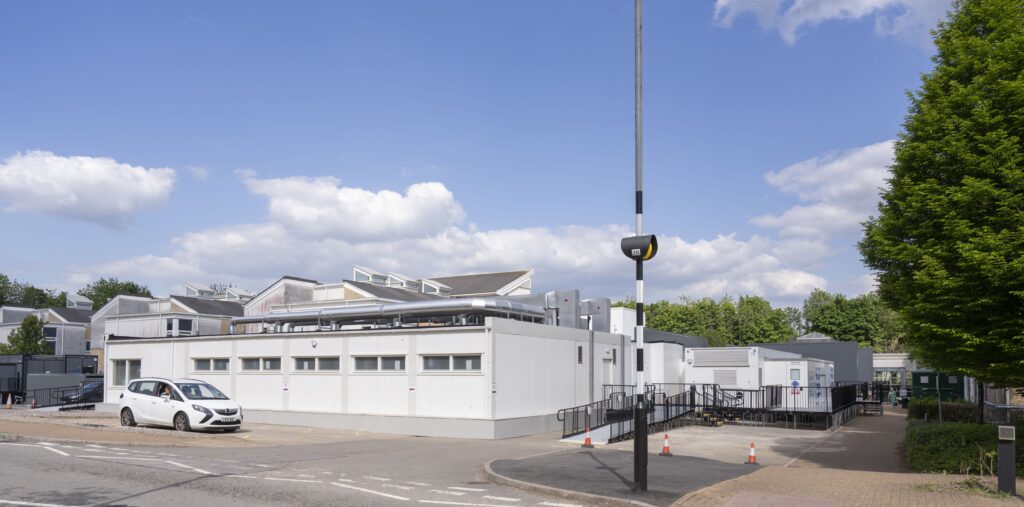
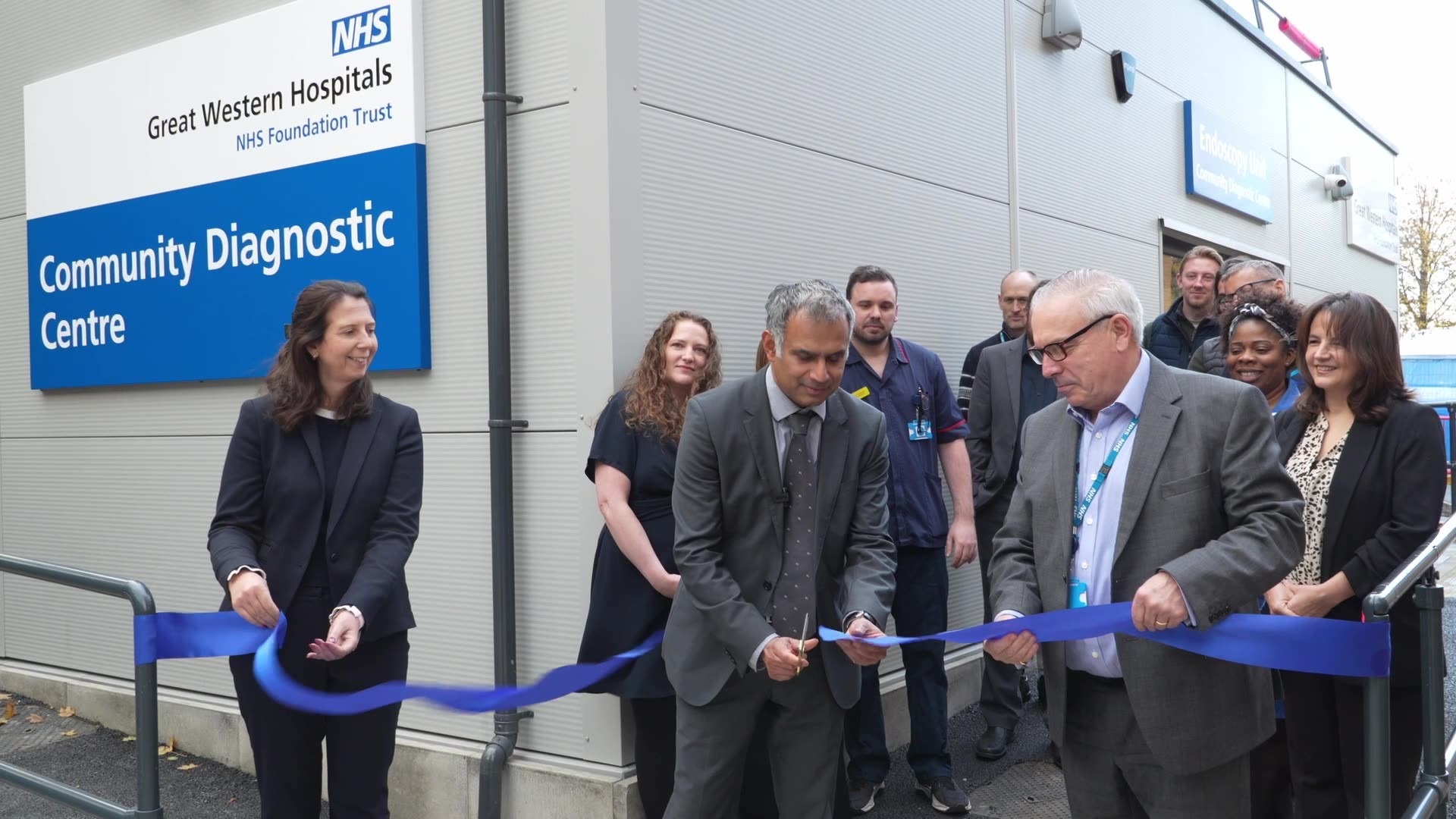
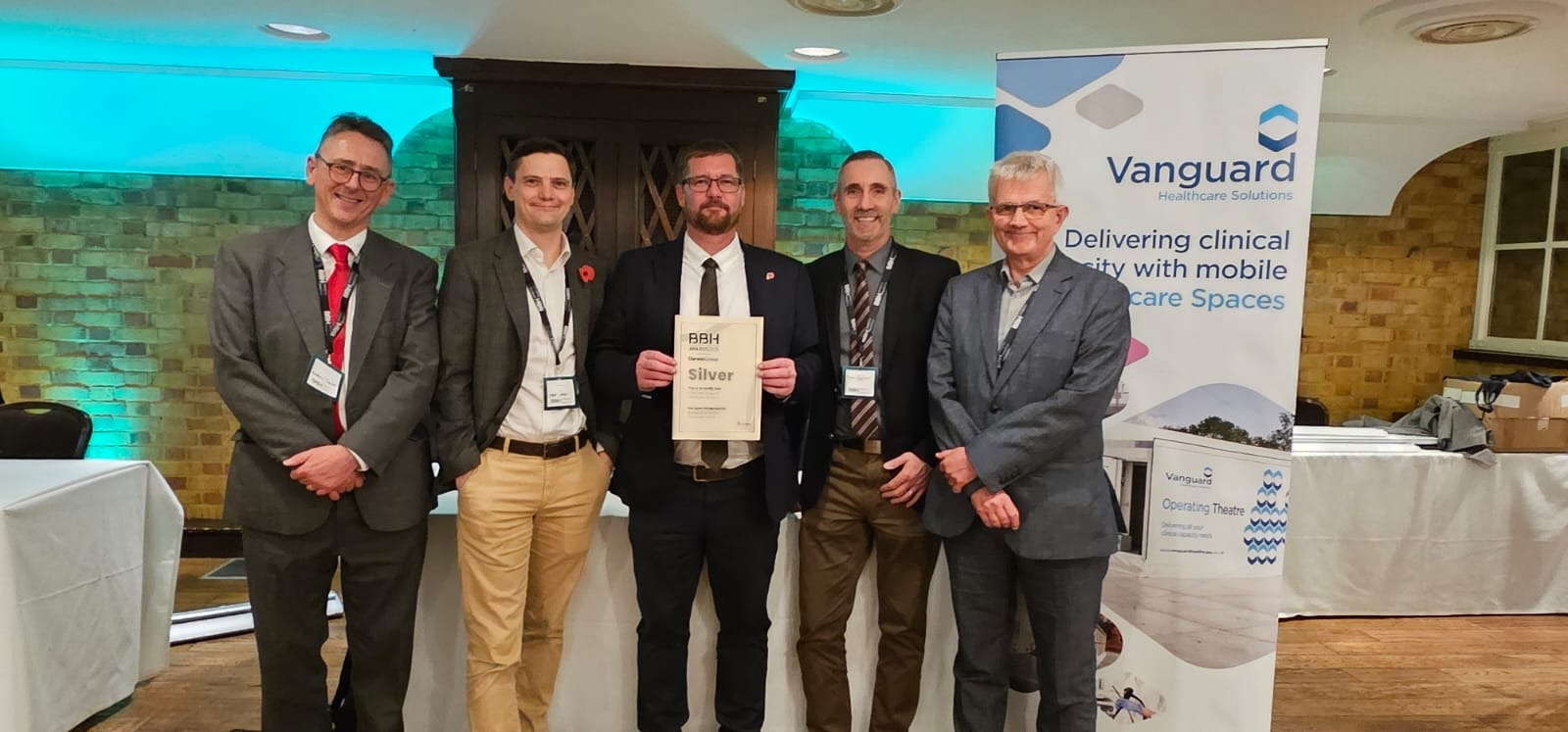
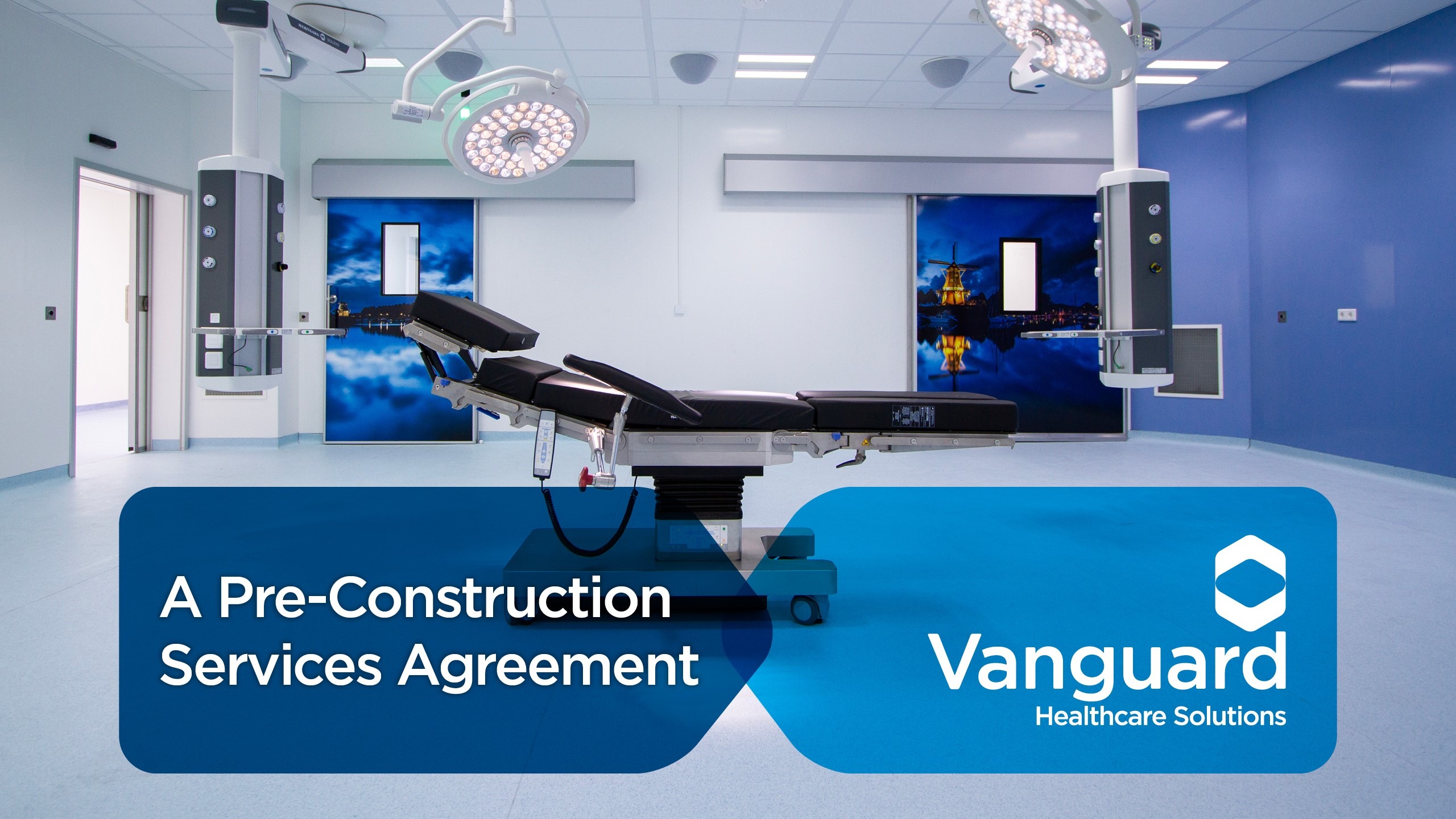
Vanguard Healthcare Solutions
Unit 1144 Regent Court, The Square, Gloucester Business Park, Gloucester, GL3 4AD

We have a different site (www.q-bital.com) which better suits your location